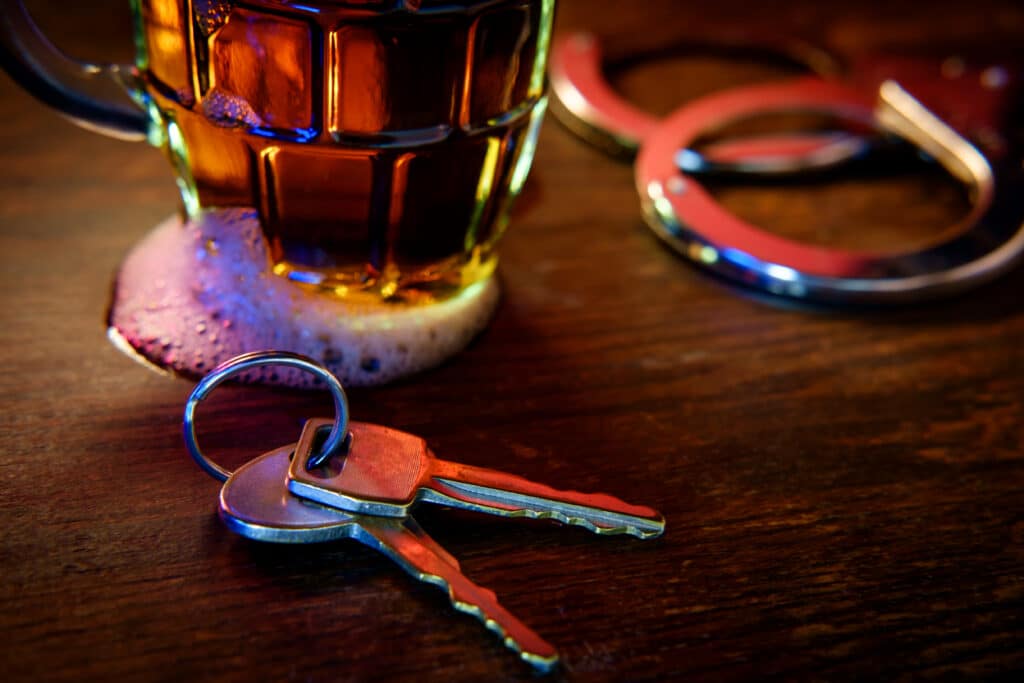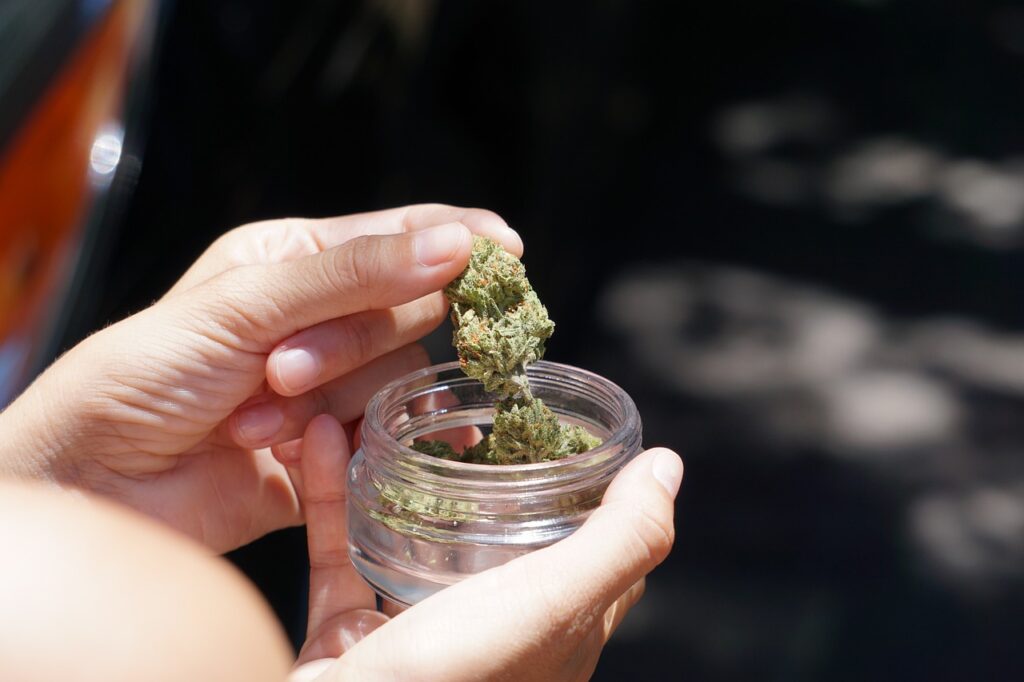- It’s generally illegal to drink in public, though there are a few exceptions
- Most Texas cities have exceptions in place for such public venues as wineries, festivals, fairs, and sporting events
- In Texas, “public” also applies to motor vehicles
In Texas and many other states, public drinking is typically illegal. However, in the United States, there are a few notable exceptions, including tourist destinations such as Las Vegas, New Orleans, and Savannah, where laws have been enacted to legalize it. Drinking while in your vehicle in those places, however, may not be legal.
In addition, rules against drinking in public places are strictly enforced in some jurisdictions, while others are more inclined to ignore them.
Texas Laws on Drinking in Public
In Texas, it is typically illegal to consume alcohol in most public spaces due to local open-container laws. However, the laws vary depending on the specific city or county.
In Texas, “in public” refers to public spaces such as sidewalks, parks, schools, public transportation, and motor vehicles.
Texas law generally prohibits alcohol consumption in public areas, though there are often exceptions for on-premise consumption at wineries, fairs, concerts, festivals, sports venues, and designated areas in tourist destinations such as the San Antonio River Walk.
Violating the Texas state laws can result in fines or other penalties. Alcoholic Beverage Code Section 109.35 allows each city or town to set its regulations, but most places enforce some form of this restriction.
Open Container Laws
Laws that prohibit drinking in public are typically called open container laws. This is because having an open container of alcohol is considered evidence of drinking, and the standard of proof is lower than the actual act of drinking. An empty container that is not cool to the touch or has condensation may be considered trash and no longer an open container.
Obscuring the alcohol (for example, by keeping it in a brown paper bag) does not make it legal. If a police officer has reasonable suspicion that you’re consuming alcohol, you can be cited or arrested.
Open container laws are determined by each state (instead of federal laws), so they can vary widely. Additionally, local laws can further complicate the issue.
Notably, some cities and public venues allow public consumption of alcohol.
This includes:
- Las Vegas
- Atlantic City
- New Orleans
- Indianapolis
- Gainesville, Fla.
- Some college campuses and sports venues (for tailgating purposes)
Generally, though, drinking in public is illegal in most places, and the law typically includes alcohol consumption in a moving vehicle.

Open Container Laws in Vehicles
Eleven states don’t have open container laws that apply to passengers in vehicles:
Alaska, Arkansas, Connecticut, Delaware, Louisiana, Mississippi, Missouri, Tennessee, Virginia, West Virginia, and Wyoming.
In these states, passengers can possess or consume open containers of alcohol in a vehicle.
However, Mississippi is the only state where the driver can have an open container. The driver may be subject to Driving Under the Influence charges if he or she is found to be under the influence by the introduction of alcohol or other substances, while driving a motor vehicle. “Under the influence” is defined under Mississippi law as “a state of intoxication sufficient to lessen a person’s normal ability for clarity and control or a BAC of .08 or higher.”

Open Container Laws also Apply to Cannabis
Cannabis is still illegal in many states, meaning you could be cited or charged if you’re caught. However, open-container laws often apply to legalized cannabis. Typically, you cannot consume or carry unsealed packages of cannabis or cannabis products in your vehicle’s passenger areas – even when the substance is legal. If you must transport these items, ensure they’re in the trunk. Consumption of cannabis while driving could lead to charges of driving while intoxicated or under the influence depending on the state.
What’s Considered an Open Container?
An open container has a missing cap, a broken seal, or is missing some of its contents. It includes:
- Bottles
- Jars
- Flasks
- Cans
- Pouches
- Cups
- Other containers that hold alcoholic beverages
Exceptions
If the open container is in a place where it can’t be accessed, such as a locked glove compartment, trunk, or space that’s unreachable from the passenger area, it’s generally legal.
You can also have open containers in some vehicles if you’re a passenger, depending on the state. These include:
- Limousines
- Rideshares
- Taxis
- Buses
- Campers
- The living quarters of recreational vehicles or motor homes
Penalties for Drinking in Public
Penalties can vary based on the state and jurisdiction, but in Texas, possessing an open container in a vehicle is a Class C misdemeanor. It carries a maximum fine of up to $500 and no mandatory jail time.
If you are consuming alcohol or other substances in a public place and are deemed to be a danger to yourself or others, this could result in a Public Intoxication charge. Public Intoxication is also a Class C misdemeanor in Texas.
However, if you’re charged with DWI, possession of an open container could enhance the charges, increasing the maximum fines and jail time. A first DWI with an open container, in Texas, is a Class B misdemeanor, which carries potential jail time of up to 180 days and fines of up to $2,000.
Vehicle Open Container Laws by State
Here is a list of states and whether passengers can consume alcoholic beverages in a motor vehicle.
- Alabama: No
- Alaska: Yes
- Arizona: No
- Arkansas: No (Alcoholic beverages cannot be consumed, but passengers can possess open containers)
- California: No
- Colorado: No
- Connecticut: Yes
- Delaware: Yes
- District of Columbia: No
- Florida: No
- Georgia: No
- Hawaii: No
- Idaho: No
- Illinois: No
- Indiana: No
- Iowa: No
- Kansas: No
- Kentucky: No
- Louisiana: No
- Maine: No
- Maryland: No
- Massachusetts: No
- Michigan: No
- Minnesota: No
- Mississippi: Yes
- Missouri: Yes
- Montana: No
- Nebraska: No
- Nevada: No
- New Hampshire: No
- New Jersey: No
- New Mexico: No
- New York: No
- North Carolina: No
- North Dakota: No
- Ohio: No
- Oklahoma: No
- Oregon: No
- Pennsylvania: No
- Rhode Island: Yes
- South Carolina: No
- South Dakota: No
- Tennessee: Yes
- Texas: No
- Utah: No
- Vermont: No
- Virginia: Yes (however, any open containers held by passengers can create a presumption the driver was drinking)
- Washington: No
- West Virginia: No (Alcoholic beverages cannot be consumed, but passengers can possess an open container)
- Wisconsin: No
- Wyoming: No
More Resources
What is the legal alcohol limit for driving in Texas?
What time does Texas stop selling alcohol?
Can a driver be arrested if their breath smells like alcohol?

Ben has vast experience in defending criminal cases ranging from DWIs to assault, drug possession, and many more. He has countless criminal charges dismissed and pled down. Among many other awards, one of the Top 10 Criminal Defense Attorneys in Texas and winner of Top 40 under 40.
Ben has vast experience in defending criminal cases ranging from DWIs to assault, drug possession, and many more. He has countless criminal charges dismissed and pled down. Among many other awards, one of the Top 10 Criminal Defense Attorneys in Texas and winner of Top 40 under 40.